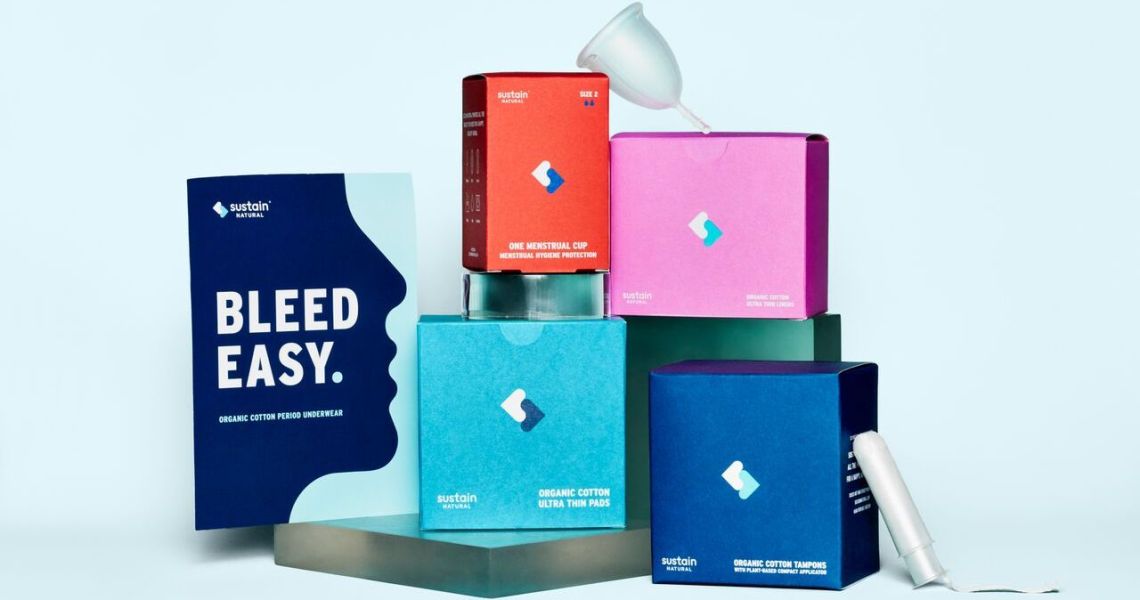On Thursday, e-commerce platform Grove Collaborative, best known for selling natural household essentials, acquired direct-to-consumer, sexual wellness brand Sustain Natural. The terms of the deal were not disclosed. Grove Collaborative hit $104 million in revenue last year and it is expected to achieve double digit growth this year with Sustain Natural’s help, said Stuart Landesberg, co-founder and CEO of Grove Collaborative
The two companies share an interest in eco-friendly products — Sustain Natural sells a line of organic lubricants, condoms, period cups and tampons. But Grove Collaborative had not focused on products that are so singularly focused on women before. Interest in women’s-centric sexual wellness products have grown though over the last year. Since its inception in 2013, Sustain Natural has raised more than $10 million in funding (Combe CPG company, which owns Vagisil, previously took a majority stake in Sustain this past January). Proctor & Gamble, meanwhile, acquired period care startup This is L. in February for $100 million. And Unilever and Sundial invested in sexual wellness brand The Honey Pot in 2018 and has helped grow its distribution from roughly 1,000 retail touchpoints in 2018 to 6,000 to date via Target, Walmart and CVS. Even Ulta Beauty now sells feminine care products from the likes of Fur and Megababe, contributing to the change that these products are taboo and should only be seen in the back aisle of a grocery store.
“As a DTC company, we heard [directly] from our community that they wanted education in sexual wellness and period care, and wanted to use better products for themselves,” said Landesberg, He explained that 50% of its customers are transitioning from conventional products to natural for the first time, and that around 85% are women. On the surface, one would assume Grove Collaborative is a company that largely serves coastal consumers, but Landesberg said that its average shopper is a 29-year-old mother of two, who is a substitute teacher; its top two sales zip codes are in suburbs in the middle of the country: Plano, Texas and Lehi, Utah.
This proved a draw for Sustain Natural, said co-founder and CEO Meika Hollender. Though its consumer is a millennial woman between 20 and 35 years old, she is one who lives in metro markets like New York City and Los Angeles. “Five years ago when I started this company, people laughed or were very uncomfortable with the idea of sexual wellness or period care. I was seen as pariah. But now that same business is something to be celebrated,” said Hollender. “There has been a huge cultural shift around femtech.”
Despite women historically leading shopping behavior in the home, growing movements like Time’s Up and Me Too have helped femtech funding hit approximately $400 million last year.
Sustain Natural’s growth plan with Grove Collaborative will center on product innovation and canvassing larger swaths of the U.S., but via its new parent company’s DTC model versus select brick-and-mortar wholesale in the past like Whole Foods. Sustain Natural’s existing direct customers will be folded into Groves subscription program via an opt-in. Both Landesberg and Hollender said that, given past precedent for these types of products, DTC is the best way for its shoppers to learn more about natural ingredients and this part of the personal care market.
“People had a lot of assumptions about this customer’s behavior, but what we have learned is that it crosses race or political stances or even economics, and it is about being the best homemaker or provider for one’s family or one’s self,” said Landesberg. “That’s the shift we see in this category that’s only going to continue.”




